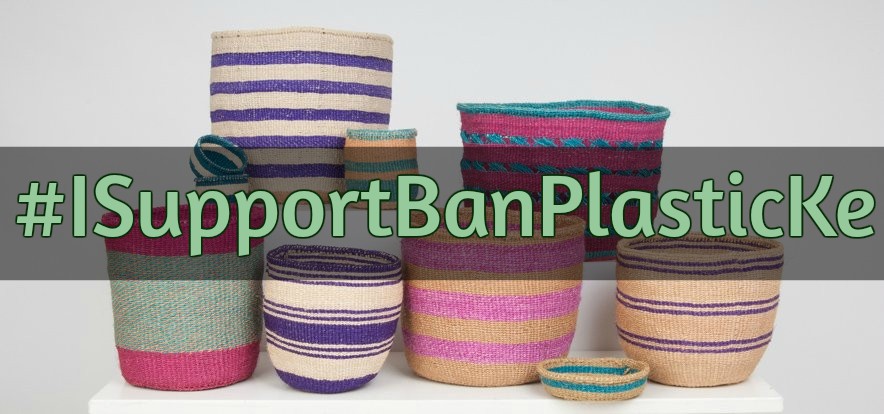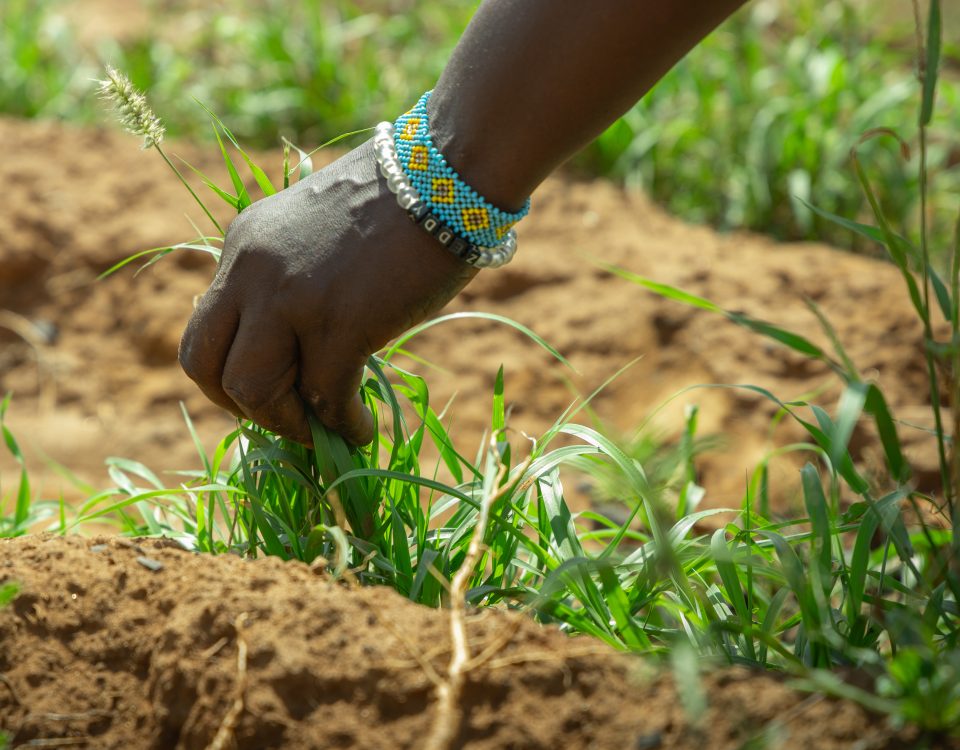5 Reasons Why I Support the Plastic Bag Ban

The Big Conservation Lie Book Review and more
21st April 2017
Why Politicians Should Include Environmental Conservation in Their Political Agenda
18th May 2017The older generation, (above 60 – 70 years of age), have a unique way of managing waste as they do not entertain it (at all). They literally keep anything, from newspapers since the 60s, which are stored safely even though they have aged and changed colour over the years, to plastic bread packets, margarine containers and plastic bottles. None is thrown away. The bread packets will either be used to store or pack food. The containers will be used to store seeds, food or a water jug. Bottles will have water, milk or any consumable or useful liquid in them among many other ‘unconventional’ uses or maybe I’m just surrounded by a peculiar bunch of grandparents/uncles/aunties. This is a trait from this generation I admire and have emulated, as seen in my previous projects here, here and here, in an effort to reduce the amount of waste I (we) produce. For this purpose, this is why I support the recently gazetted plastic bag ban.

Background Image Credit fatelly.com
-
The Ban is Long Overdue
Plastic packaging was introduced in 1957 and was purely used to wrap sandwiches. In 1970, department stores started using plastic bags and later on in the 1980’s, supermarket chains introduced plastic bags (More on the History of plastics). Relatively, it has been 60 years since the plastic packaging was invented (Note: Packaging). These 60 years have seen an influx of the product globally and as the population size increases (now over 7.5 billion people), the rate of plastic bag production increases.
Most plastic bags are made from crude oil which is not a renewable resource. The mining and use of petroleum have actually led to an increase in global warming among many other dynamics.
In 2007, Kenya put a ban for plastics below 30 microns but failed after manufacturers and retail outlets threatened to pass on the cost of using other materials to consumers. In January 2011, a ban was put placed on all imports of plastic bags. Why do we take too long? We should take a step forward and support the plastic bag ban.
-
It’s possible to live without plastic bags
Plastics are a mess, unappealing and not biodegradable. They clog sewers, pollute our riverbanks and waterways, fill our streets and kill any living thing they come across after they have served their purpose of carrying our goods whether large or small.
A country where we do not depend on plastic bags to carry and wrap our goods is very plausible. We won’t be the first to cause a global stir by having a ban on plastic bags. A country like Rwanda has managed to effectively do so. This has been a model to the rest of Africa. Other countries like Bangladesh, China, some states in the USA and parts of Australia, South Africa and Brazil have a plastic bag ban in place.
Some countries have imposed taxes on plastic bags. Denmark (in 2003), Ireland (in 2002), Wales (in 2011), Scotland (in2014), Germany, Mexico, France and Belgium introduced a tax to producers and retailers for supplying plastic bags. Stores eventually charged for the plastic bags which pushed for the use of reusable bags. We could resort to doing this where one is charged when doing their shopping, more so in supermarkets, together with the bought goods as a separate entity. Still, a total ban is more effective.
One could argue that the small population size of Rwanda, compared to Kenya, supports the plastic bag ban, but this an excuse and we should break from employing avoidance.
-
Encourage Innovative Thinking
When I say I support the plastic bag ban, I know they are many alternatives to it. This does not mean my support for the introduction of paper bags, because, I love trees. Also, paper bags would result to mass plantations of trees to sustain the use of this packaging material. This means setting aside land and plant trees in stages which will then be cut down for paper bag production. Remember, trees take the time to fully mature. Paper bags are also a one time use, unlike the plastic bags (the paper bag versus the plastic bag). Technically, this does not make any economic sense and is not sustainable, especially for a growing and developing population as explained at rookie-manager.com.
There are other better innovative ways. Sisal bags and cloth (cotton) bags. These can be made in any design and are very versatile. They are also reusable making them very sustainable. Here is a link on types of carrier bags in terms of manufacturing process, transportation and ultimately, disposal.
A ban on plastic bags will result in a loss of millions of jobs, but on the bright side, we will become more innovative and create many technical and cottage industries that deal primarily with the production of reusable packaging bags. Whether, one is packing edible products, small and large items. We can begin to think in a creative way. The world buys ideas. If we can turn plastic waste to bags, poles and jewellery, we are certainly an innovative people.
-
Future Environmental Stakeholders will Benefit
Globally, ocean waste kills at least 1 million seabirds and over 100,000 mammals, reptiles and fish every year. Wild animals and birds get entangled and ingest most plastic waste. When they are entangled, they cannot move or fly. They therefore drown. When ingested, the plastic fills their digestive systems unknowingly since they cannot be able to distinguish between food and plastics (we tend to forget we are ‘lucky’ to have a well formed thoughtful brain). The plastics end up clogging their intestines and in the end, they die of starvation.
Do not think that only wild animals face the annoyance of improper plastic bag disposal as domestic animals also choke from eating plastic bags.
The plastic bags also clog our sewers and drainage systems. On the onset of rains, flooding in towns is very to be expected and malaria is on the rise since the mosquitoes will breed in their numbers in the stagnant water. Let’s not forget the detrimental health effect in our endocrine system as discussed in an earlier post here.
Clearly, every living being on planet earth is affected by this plastic bag waste menace.
A ban on plastic will therefore ensure, our biodiversity is restored and maintained, food security secured and the future of the next generation spared from the unsafe long and short term effects of plastic bags.
-
Enforcement Against Cartels and Brokers
The largest opposition of any plastic bag ban comes from the petroleum and plastic industries and anyone who benefits from these two industries in a massive way. These are individuals who literally ‘mint’ money out of plastic bags and eventually convince the consumers who do not want to change their habits.
“All our life, so far as it has definite form, is but a mass of habits,” William James.
The plastic ban is set to be effective from September 2017.

Do you support the plastic ban? Why? If not, why? Share your insights in the comment section? It’s a free country.




6 Comments
[…] Remember to reuse, reduce and recycle our use of plastics and support the Plastic Bag Ban. […]
[…] Related: 5 Reasons Why I Support the Plastic Bag Ban […]
[…] When the cold weather beckons and all you need is a warm scarf, shawl or blanket. A beautiful customised rug or carpet to warm your home. Add a carrier bag made of bio-degradable material to this list in this era of the Plastic bag ban. […]
[…] have given me a lecture if she ever saw me throwing trash on the streets). Even though we have a plastic bag ban in place we still have them packing our bread and the illegal ones are still finding their way into […]
[…] my mind as we entered a new month. Last year, at a time like this, Kenya was grappling with the plastic bag ban set into effect by the then Ministry of Environment and Natural Resources led by Prof. Judi […]
[…] for banning the use, production, distribution and importation of plastic bags in Kenya which was implemented in 2017. For many people, this is needed, however, we still have a lot to do in protecting the places that […]